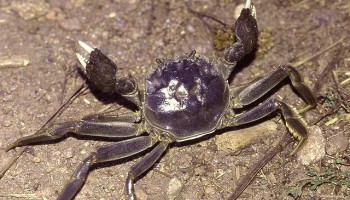In the largest bust in their history, Hong Kong Customs officials seized US$27 million worth of illicit goods, ranging from counterfeit designer purses, to cigars, rare ingredients and illegal wildlife parts like endangered shark fins.
“Customs targeted an organised smuggling syndicate active in Lung Kwu Tan since June this year and conducted a joint enforcement operation with the Marine Police's Small Boat Division on September 23 after months of in-depth investigations,” the agency said in a statement released last week.
Only a few days later, officers revealed another major bust. After inspecting a suspicious case labelled solar lamps, they found it concealing nearly 200 kilos of methamphetamine and heroin, valued at nearly $18 million. That was just two weeks after another search revealed 230 kilograms of liquified methamphetamines.
It was the largest in a series of drug busts authorities on the island have initiated in recent weeks. In another anti-narcotics operation, they took $7 million of cocaine, heroin, ketamine and other drugs off the streets.
Drugs aren’t the only thing flowing into Hong Kong's ports either. In the last month customs officials have seized large amounts of illegally logged sandalwood, hairy crab, endangered Totoba fish, counterfeit mooncakes, illicit cigarettes and other contraband.
Though local authorities have been hard at work, the massive amounts of illegal goods flowing through the city have cemented its reputation as a major hub for smuggling and illicit trades of all sorts, but in particular, the illegal wildlife trade.
“Hong Kong has a disproportionately large trafficking footprint and has long been exploited by organised and serious criminal groups in the pursuit of large profits from illegally traded wildlife,” said the ADM capital foundation in a report on the city’s role in the trade.
“The potential profit from such crimes inevitably provides enormous incentive for organised and serious criminal syndicates. It is vital that the financial flows of these crimes are investigated and, optimally, that proceeds are confiscated if prosecutions are to truly serve as deterrents,” it concluded.






